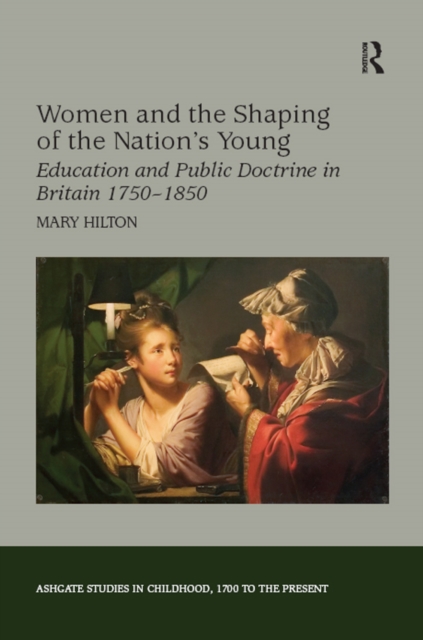
Women and the Shaping of the Nation's Young : Education and Public Doctrine in Britain 1750-1850 PDF
by Mary Hilton
Part of the Studies in Childhood, 1700 to the Present series
Description
Researchers have neglected the cultural history of education and as a result women's educational works have been disparaged as narrowly didactic and redundant to the history of ideas.
Mary Hilton's book serves as a corrective to these biases by culturally contextualising the popular educational writings of leading women moralists and activists including Sarah Fielding, Hester Mulso Chapone, Catherine Macaulay, Mary Wollstonecraft, Hannah More, Sarah Trimmer, Catharine Cappe, Priscilla Wakefield, Maria Edgeworth, Jane Marcet, Elizabeth Hamilton, Mary Carpenter, and Bertha von Marenholtz Bulow.
Over a hundred-year period, from the rise of print culture in the mid-eighteenth century to the advent of the kindergarten movement in Britain in the mid-nineteenth, a variety of women intellectuals, from strikingly different ideological and theological milieux, supported, embellished, critiqued, and challenged contemporary public doctrines by positioning themselves as educators of the nation's young citizens.
Of particular interest are their varying constructions of childhood expressed in a wide variety of published texts, including tales, treatises, explanatory handbooks, and collections of letters.
By explicitly and consistently connecting the worlds of the schoolroom, the family, and the local parish to wider social, religious, scientific, and political issues, these women's educational texts were far more influential in the public realm than has been previously represented.
Written deliberately to change the public mind, these texts spurred their many readers to action and reform.
Information
-
Download - Immediately Available
- Format:PDF
- Pages:296 pages
- Publisher:Taylor & Francis Ltd
- Publication Date:02/03/2017
- Category:
- ISBN:9781351872157
Other Formats
- EPUB from £44.09
- Hardback from £140.00
- Paperback / softback from £47.05
Information
-
Download - Immediately Available
- Format:PDF
- Pages:296 pages
- Publisher:Taylor & Francis Ltd
- Publication Date:02/03/2017
- Category:
- ISBN:9781351872157






